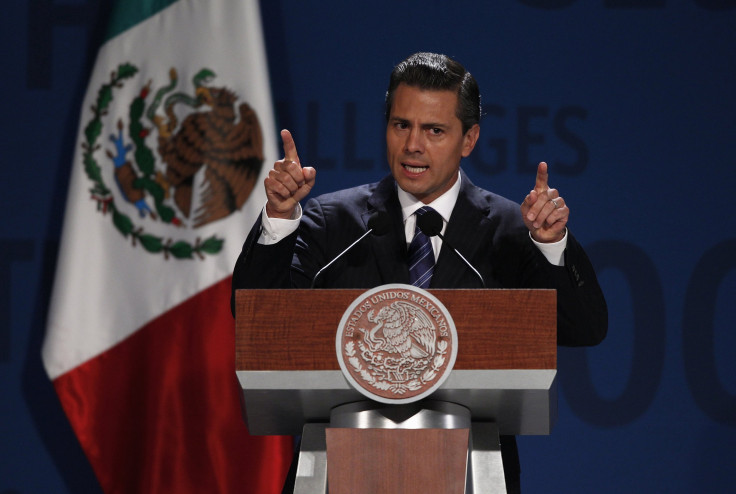
Foreign Policy magazine has named Mexican President Enrique Peña Nieto one of the top 100 global thinkers of 2013, where Peña Nieto comes in at number 17 on the "decision-maker" section of the annual list. "Less than a year into his administration, Mexico's wheels are turning," wrote the magazine, highlighting an ambitious series of reforms in the areas of education, energy, and telecommunications, among others. "Peña Nieto's accomplishments stem in large part from the Pact for Mexico, an alliance among the country's three main parties that the president established on his first day in power and that agreed to 95 shared policy goals."
The Mexican president shares space on the list with a few other Latin American leaders. Foreign Policy praises José Mujica, the president of Uruguay, for "redefining the Latin American left" in part by legalizing the sale and production of marijuana as well as legalizing abortions during the first trimester and same-sex marriage all within the past two years. Colombian President Juan Manuel Santos's efforts in brokering a peace with FARC guerillas won him a slot; Brazilian President Dilma Rousseff's "confronting Washington and its spies" on their surveillance of Brazilian officials and citizens earned her the fifth spot on the list.
Foreign Policy's inclusion of Peña Nieto, who has scarcely spent a year in office, might strike many as premature at best. Though the list gestures to the Mexican president's "accomplishments", only two big ones have passed thus far. One, an overhaul of the country's educational system, has been largely welcomed for cutting into the pull of the powerful teachers unions, but it's feared that the national standards it establishes will be impractical in the poorest and most rural parts of the country. Another which restructures the country's tax system was weakened considerably by the pressuring of the conservative party whose support it counted on. And the most recent to be introduced - energy reform - promises to be the most controversial of all, as it could open Mexican oil reserves to de facto concessions to foreign companies.
- Here's the top 10 of Foreign Policy's list, which can be read in full here.
- 1. Edward Snowden (for exposing the reach of government spying)
- 2. Keith Alexander (for masterminding the surveillance state)
- 3. Glenn Greenwald (for giving Edward Snowden a voice)
- 4. Laura Poitras (also for giving Edward Snowden a voice)
- 5. Dilma Rousseff (for confronting Washington and its spies)
- 6. Ron Wyden (for insisting that the law should never be secret)
- 7. Jesselyn Radack (for championing the rights of whistleblowers)
- 8. Moxie Marlinspike (for making it harder for the NSA and Google to spy on you)
- 9. Kevin Mandia (for identifying the perpetrators of China's cyber-offensive)
- 10. Dimitri Alperovitch (for leveling the cyber playing field)
RELATED: Pemex Oil Reform: How Bad Off Is Mexico's State Oil Company?
© 2025 Latin Times. All rights reserved. Do not reproduce without permission.




